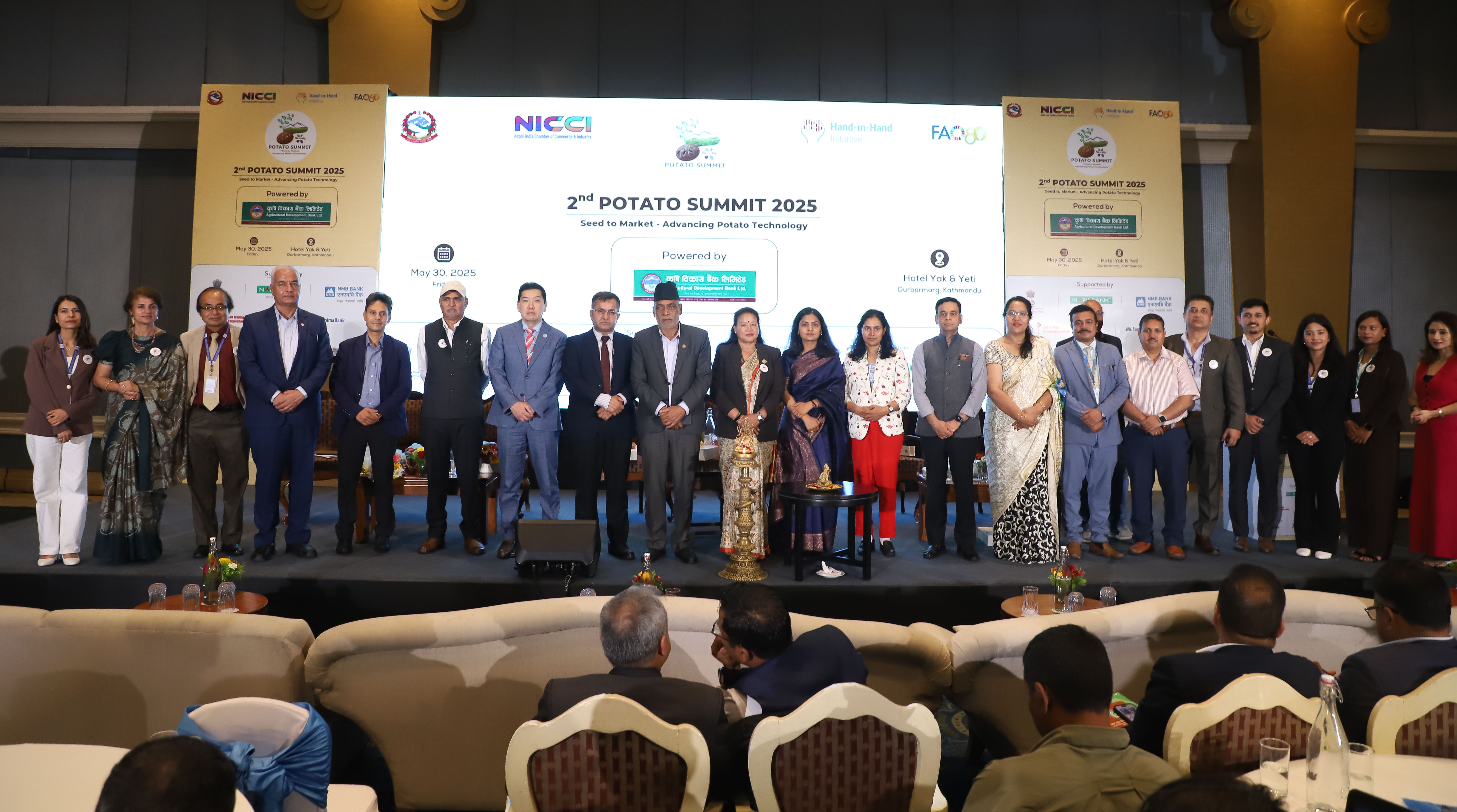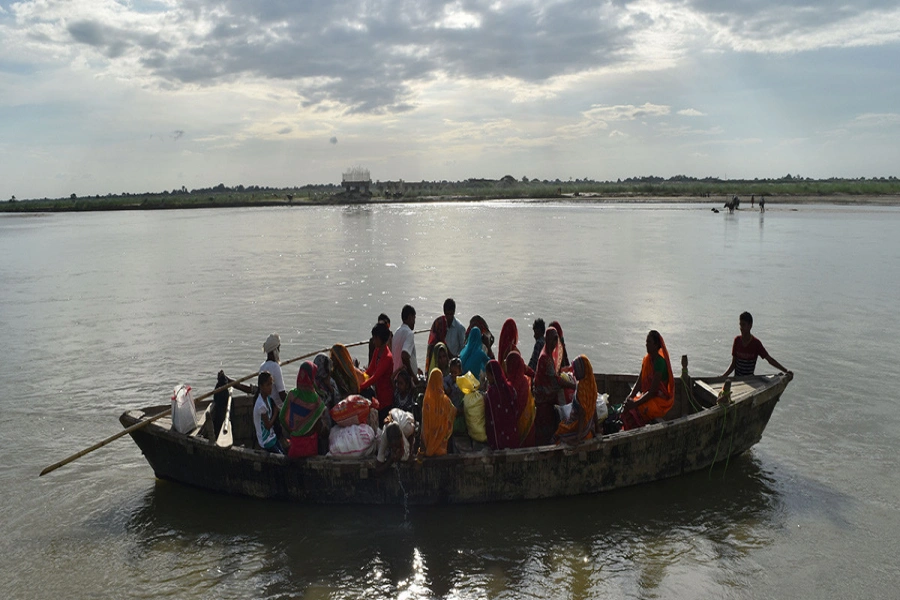TIKAPUR, Nov 6: Every day hundreds of farmers ride bicycles to reach the Indian market and return with sacks of potatoes. At this time, farmers can be seen returning with sacks of potatoes on their bicycles in the border area.
Not only this year, they come along with sacks of potatoes every year. Most of the farmers here cultivate potatoes. Some people grow potatoes for business, while others grow potatoes for food. However, the amount they grow is very little. Potato seeds are not available in Nepal and farmers have to visit the bordering Indian towns for potato seeds.
Jairam Chaudhary of Bhajani Municipality-3 Kada does not remember buying potato seeds in the Nepali market. Every year he buys potato seeds from Tikuniya, an Indian border market.
Farmers in Chitwan earn over RS 65 million by selling seeds

This year too, he was found near Kusumghat while returning with two sacks of potato seeds on his bicycle. Farmers can be seen not only at the Kusumghat crossing but also at Khakraula, Kalakunda, Chandanchowki, Prithvipur and other places connected to the Indian border market.
Nepali farmers depend on the Indian market for potato seeds. More than 1,000 farmers buy potato seeds daily in Tikuniya alone. It can be estimated that potato seeds worth millions of rupees are imported in Kailali every season.
Indian potato seeds are cheaper than the Nepali ones. For a sack of 50 kg of potato seeds, it costs INR 500 rupees. It is found that the same bag is sold in the Nepali market for Rs 1,400. Farmers say that Nepali potato seeds are not only expensive but also very difficult to get as needed.
According to the farmers, Indian potato seeds are also very useful in production. They say that it has the advantages of early fruiting and can bear many fruits. Prem Chandra Chaudhary of Bhajani Municipality-6 Mahadeuli said that Indian potato seeds will be produced within two months after planting. "If we plant it now, the crop will be ready for harvesting in February," he said.
A farmer has to spend one day for one sack of potato seeds. They leave home after eating in the morning. They return home in the evening after cycling for the whole day. It is seen that not only men but also women reach the Indian border markets to buy potato seeds.
Additionally, there is no cold store in Kailali for storage of potato seeds. Farmers are forced to take potato seeds to Mahendranagar or Nepalgunj and store them there. The traditional practice of storing potato seeds by farmers themselves has disappeared. In this way, the number of farmers who store potato seeds in the traditional way is very low.




































